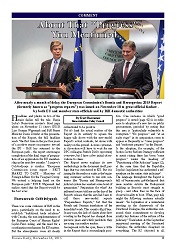
DPC BOSNIA DAILY: About That "Progress" You Mentioned...
Bosnia Daily: November 16, 2015 – About That "Progress" You Mentioned...
More...We kindly inform you that, as long as the subject affiliation of our 300.000+ articles is in progress, you might get unsufficient or no results on your third level or second level search. In this case, please broaden your search criteria.

Bosnia Daily: November 16, 2015 – About That "Progress" You Mentioned...
More...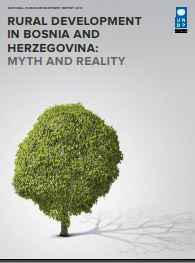
Instead of an Abstract/Summary here, please refer to the Introduction PDF-file which includes the Executive Summary
More...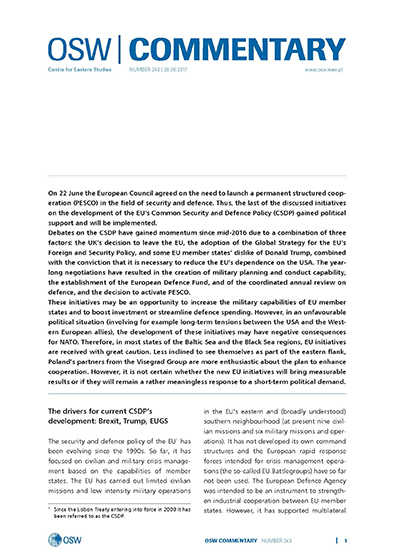
In recent years, Ukraine’s agriculture has been consistently improving and has been the only part of the country’s economy to buck the recession. According to preliminary estimates, in 2013 agricultural production increased by 13.7% - in contrast to a 4.7% decline in the industrial sector. According to official statistics, Ukraine’s industrial production was up 40% in the final months of 2013 when compared to the same period of 2012. This translated into an unexpected gain in fourth-quarter GDP growth (+3.7%) and prevented an annual drop in GDP. Crop production, and particularly the production of grain, hit a record high: in 2013, Ukraine produced 63 million tonnes of grain, outperforming its best ever harvest of 2011 (56.7 million tonnes). The value of Ukraine’s agricultural and food exports increased from US$4.3 billion in 2005 to US$17.9 billion in 2012, and currently accounts for a quarter of Ukraine’s total exports. Economic forecasts suggest that in the current marketing year (July 2013 - June 2014) Ukraine will sell more than 30 million tonnes of grain to foreign markets, making it the world's second biggest grain exporter, after the United States.
More...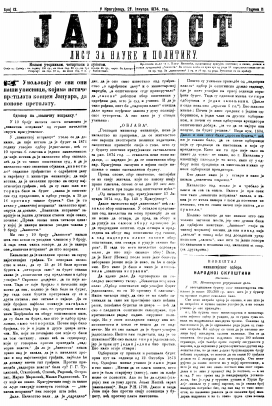
Одговор на ''званичну исправку''; ОБЈАВА; ИЗВЕШТАЈ ФИНАНСИЈСКОГ ОДБОРА НАРОДНОЈ СКУПШТИНИ; ОДБОРСКИ ИЗВЕШТАЈ ПОДНЕТ ГЛАВНОЈ СКУПШТИНИ; Како се подиже пољоделство; ДОПИСИ; Шабац 14, Јануара; Да напоменемо и да чинимо; Крагујевачка новост; Најновије; Јавна благодарност; штампарска исправка; Књижевни Огласи; ''СМИЉЕ''; ОГЛАСИ;
More...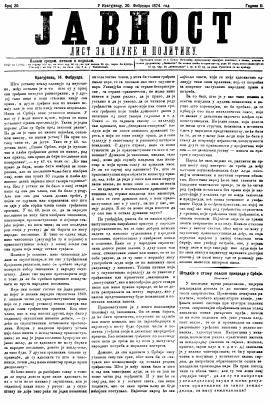
Крагујевац 14. Фебурара; Штудије о стању пољске привреде у Србији; О главном базису владе; Питањуе на г. министра финанције; ДОПИСИ; Београд 16. Фебурара; Крагујевац 14. Фебруара; чачак 14. Фебруара; Најновије; РАЗЛИЧНОСТИ; Јавна коресподенција;
More...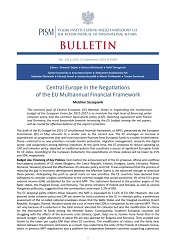
The common goal of Central European (CE) Member States in negotiating the multiannual budget of the European Union for 2021-2027 is to maintain the high level of financing under cohesion policy and the common agricultural policy (CAP). Reaching agreement with France and Germany, the most favourable towards increasing the EU budget among the net payers, will be crucial for effective defence of the region’s priorities.
More...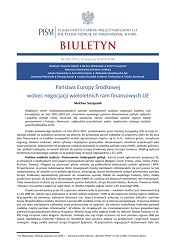
Wspólnym celem środkowoeuropejskich państw członkowskich podczas negocjacji budżetu Unii Europejskiej na lata 2021–2027 jest utrzymanie wysokiego poziomu finansowania polityki spójności i wspólnej polityki rolnej. Kluczowe dla skutecznej obrony postulatów państw regionu będzie porozumienie z Francją i Niemcami, najbardziej przychylnymi wobec zwiększania unijnego budżetu spośród płatników netto.
More...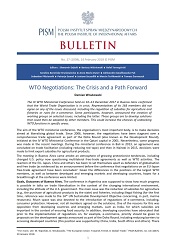
The XI WTO Ministerial Conference held on 10–13 December 2017 in Buenos Aires confirmed that the World Trade Organisation is in crisis. Representatives of its 164 members did not agree on any of the issues discussed, including the regulation of subsidies for agriculture and fisheries or rules for e-commerce. Some participants, however, announced the creation of working groups on selected issues, including the latter. These groups are to develop solutions that could then be adopted by other members. This could increase the chances of unblocking WTO functions in specific areas.
More...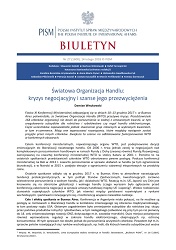
Fiasko XI Konferencji Ministerialnej odbywającej się w dniach 10–13 grudnia 2017 r. w Buenos Aires potwierdziło, że Światowa Organizacja Handlu (WTO) przeżywa kryzys. Przedstawiciele 164 członków organizacji nie doszli do porozumienia w żadnej z omawianych kwestii, w tym uregulowania subsydiów dla rolnictwa i rybołówstwa czy reguł handlu elektronicznego. Część uczestników zapowiedziała jednak stworzenie grup roboczych w wybranych kwestiach, w tym e-commerce. Mają one wypracować rozwiązania, które mogłyby następnie zostać przyjęte przez innych członków. Zwiększa to szanse na odblokowanie funkcjonowania WTO w konkretnych obszarach.
More...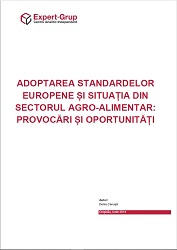
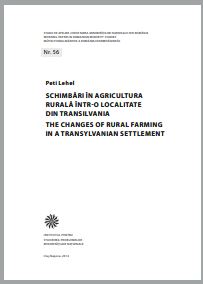
The article analyzes the changes occurred in a Transylvanian village farming. First part of the paper focuses on the economic and social frameworks and context of the rural farming. The main part of the analysis based on the theoretical concepts of pluriactivity, diversification and food self-provisioning and the conceptualization of the special literature analyzes the economic strategies of a Romanian village, seeking to present a typology based on nature of economic strategies. The author argues that the main strategy is pluriactivity, however the limited forms of diversification are also present in the farming patterns of the village, which mark a shift toward a more specialized, profit-oriented farming. Near this strategies the food self-provisioning is also present, what is more there has appeared new ideologies and meanings regarding to food very well known mostly from the western countries' alternative food networks.
More...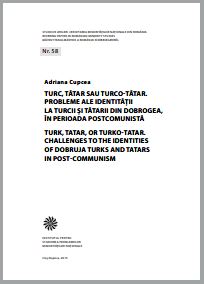
The study attempts to present the economic strategies of a settlement, in which employment in state companies built upon a specific environmental resource (natural gas extraction) as well as the success of an independent enterprise has significantly transformed the livelihood strategies based on agriculture, resulting in a change in lifestyle as well. The studied settlement represents the opposite model of the villages re-peasantised after the regime change, described in the Transylvanian scholarly literature. The study analyses the economic behaviour modes, as well as the changes in the livelihood strategies observed in a settlement along the Kis-Küküllő (Târnava Mică) River, aiming to present the stratification of the rural society based on economic strategies. The author outlines the way in which in this multiethnic (inhabited by Hungarians, Romanians and Romani) small settlement, the bakery which used to function as a cooperative during socialism became a well-established company employing a significant part of the village's population, being present in important segments of the national markets, connecting the previously isolated small settlement with new regional and national networks. He also presents the significance of the natural gas extraction activities from the point of view of livelihood strategies, after which he presents the economic strategies built upon agricultural activities.
More...
UKRAINE ON THE INTERNATIONAL MARKETS: PROBLEMS AND PROSPECTS // 1. THE CURRENT STATE OF UKRAINE'S FOREIGN TRADE // 2. FACTORS THAT INFLUENCE UKRAINE'S FOREIGN TRADE // 3. CONCLUSIONS AND PROPOSALS // DEVELOPMENT OF UKRAINE'S EXPORT POTENTIAL: AN EXPERT VIEW // UKRAINE'S EXPORT POTENTIAL: THE PRIORITIES OF INTEGRATION // CHANGES ON THE WORLD ALUMINIUM MARKET: UKRAINE'S PROSPECTS UKRAINE ON THE WORLD ARMS MARKET // EXPORT OF UKRAINIAN SCRAP METAL: THE EXPERIENCE OF STATE REGULATION // UKRAINE - IRAQ: TO TRADE, OR NOT TO TRADE?
More...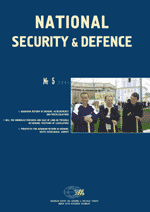
AGRARIAN REFORM IN UKRAINE: ACHIEVEMENTS AND MISCALCULATIONS // 1. AGRARIAN REFORM IN UKRAINE: THE PRESENT STATUS AND CURRENT TRENDS // 2. FACTORS THAT DETERMINE THE RESULTS OF AGRARIAN REFORM // 3. CONCLUSIONS AND PROPOSALS // POSITIONS OF THE DEPUTY GROUPS ON AGRARIAN REFORM IN UKRAINE // AGRARIAN REFORM IN UKRAINE: THE RESULTS AND PROSPECTS // Secretariat of the Commission for Agrarian Policy under the President of Ukraine // AGRARIAN REFORM IN UKRAINE: THE RESULTS AND PROSPECTS // THE FIFTH WHEEL IN A PEASANT CART? THE ROLE OF PUBLIC ORGANISATIONS IN LAND REFORM IN UKRAINE // THE LIST OF PUBLICATIONS BY UCEPS EXPERTS IN 2001
More...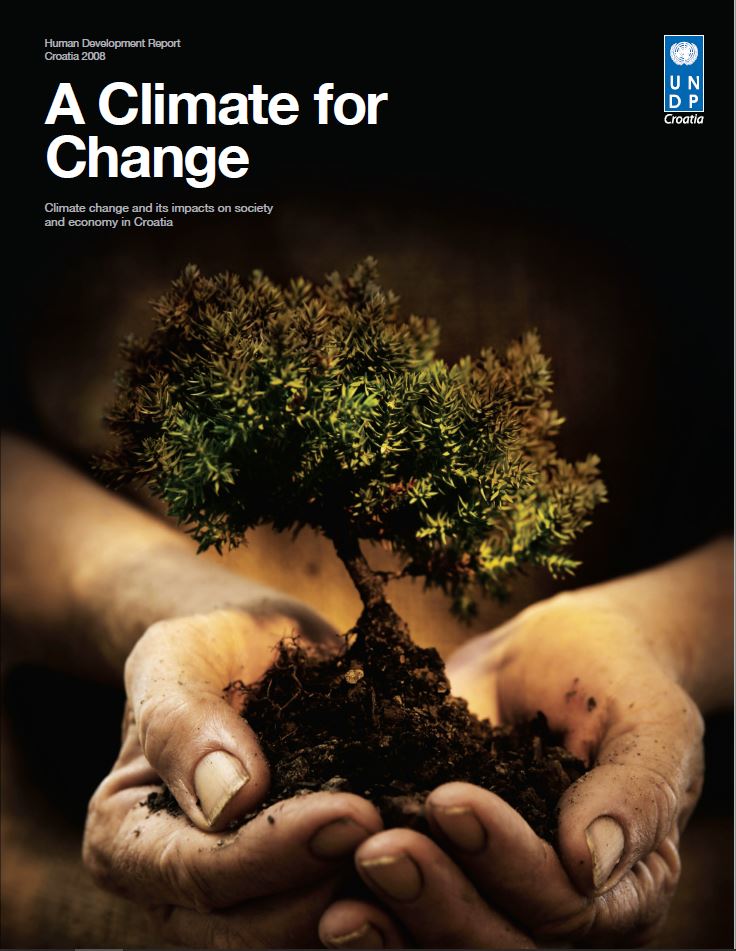
Both the Government and citizens are concerned and interested in the climate change issue. The Governmentis already pursuing several strategies to reduce greenhouse gas emissions, thus allowing the Human DevelopmentReport to focus on identifying key gaps and to provide specific recommendations on “climate-proofing”human development strategies. In addition, the Report can help to address public concerns: in a recent survey, 8 out of 10 Croatians felt that climate change was really happening, and of that group, 4 out of 10 thought itworse than experts were saying. // While this Report is not meant to be a comprehensive overview of all aspects of climate change, it does reflectthe breadth and depth of research that has been done in many sectors to date, and it provides a link between aglobal phenomenon and the everyday human development issues facing Croatia. The research and analysis in thisHuman Development Report indicates that, while climate change is likely to pose serious threats to human developmentin Croatia, it also has the potential to bring several beneficial opportunities. The “climate for change” thatcurrently exists in Croatia will provide the country with the motivation it needs to rise to the challenge.
More...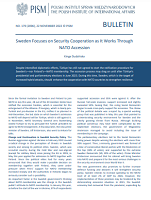
Growing input costs constitute a serious problem for EU farmers. Although this year higher prices for agricultural products and state aid protected them against a drastic loss of income, in the long term, high prices of fertilisers, fuel, and energy related in part to the war in Ukraine threaten profitability and complicate planning. In the meantime, this summer’s drought demonstrated how destructive climate change is for agriculture. Faced with multiple challenges, Member States are prioritising financial support for farmers and maintaining the level of production in the EU. In the name of these objectives, they are ready to delay implementation of the green transition in agriculture.
More...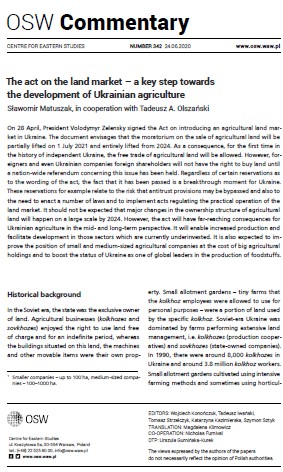
On 28 April, President Volodymyr Zelensky signed the Act on introducing an agricultural land market in Ukraine. The document envisages that the moratorium on the sale of agricultural land will be partially lifted on 1 July 2021 and entirely lifted from 2024. As a consequence, for the first time in the history of independent Ukraine, the free trade of agricultural land will be allowed. However, foreigners and even Ukrainian companies foreign shareholders will not have the right to buy land until a nation-wide referendum concerning this issue has been held. Regardless of certain reservations as to the wording of the act, the fact that it has been passed is a breakthrough moment for Ukraine. These reservations for example relate to the risk that antitrust provisions may be bypassed and also to the need to enact a number of laws and to implement acts regulating the practical operation of the land market. It should not be expected that major changes in the ownership structure of agricultural land will happen on a large scale by 2024. However, the act will have far-reaching consequences for Ukrainian agriculture in the mid- and long-term perspective. It will enable increased production and facilitate development in those sectors which are currently underinvested. It is also expected to improve the position of small and medium-sized agricultural companies at the cost of big agricultural holdings and to boost the status of Ukraine as one of global leaders in the production of foodstuffs.
More...
In October, the European Parliament approved the goals set by the European Commission (EC) in the Farm to Fork Strategy. This boosted the effort to reduce the negative effects of agriculture on the climate and environment. The details of the strategy must, however, still be negotiated, with the majority of Member States less enthusiastic about the planned reforms than MEPs. Certain sectors of the agri-food industry are striving to slow the transformation.
More...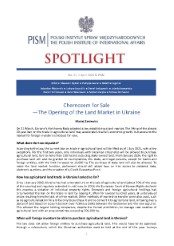
On 31 March, Ukraine’s Verkhovna Rada adopted a law establishing a land market. The lifting of the almost 20-year ban on the trade in agricultural land may accelerate Ukraine’s economic growth, but access to the market for foreign investors is blocked for now.
More...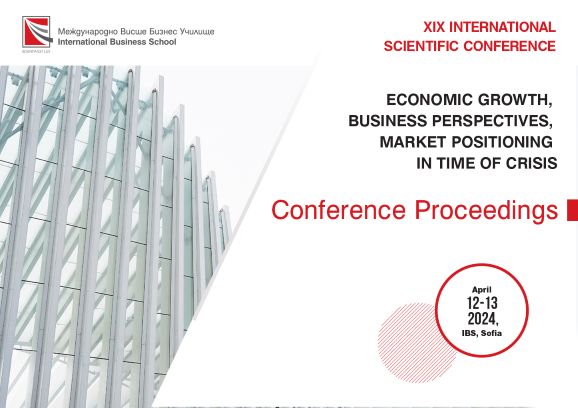
A considerable portion of the agricultural land in the plains of the country is currently used for grain production. This is an industry lying on rich traditions stemming from Bulgaria’s favourable climate coupled with appropriate soil characteristics and valuable features of any such crops for various sorts of fodder fed to farm animals and used in the food industry. The main bulks of cereals open opportunities to guarantee strategic food reserves of Bulgaria. The remaining quantities enjoy good marketability internationally. While cereal crop production enjoys such favourable prerequisites it also faces a number of issues. The list of the latter may start form the lack of labour force in Bulgaria’s rural regions, which would be supposed to apply new technology and make use of today’s modern agricultural equipment or to follow the climatic changes entailing drought, substandard success in fight against natural disasters such as hail or floods, dynamics in the regulatory framework which the competitiveness of the sector would depend on (allowing duty-free imports of grain from other countries), or untimely payment of subsidies. The goal of this article is, bases on the trends in the production of some of the main cereals’ crops, to discuss any opportunities to stimulate the sustainable development of cereal production in Bulgaria and overcoming the consequences of a variety of kinds of crises.
More...